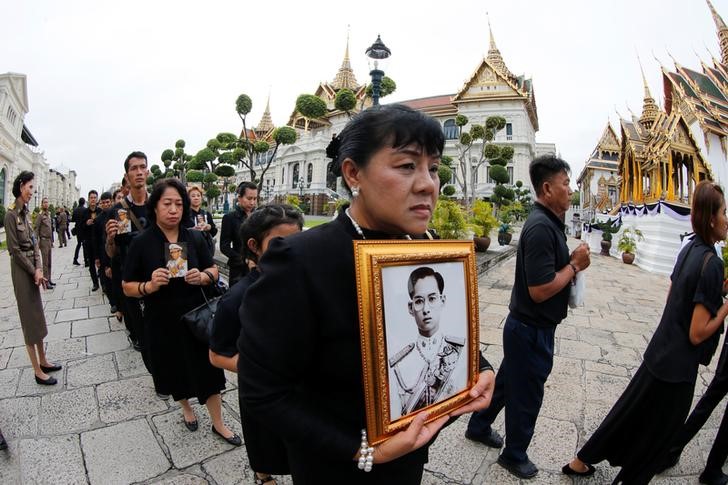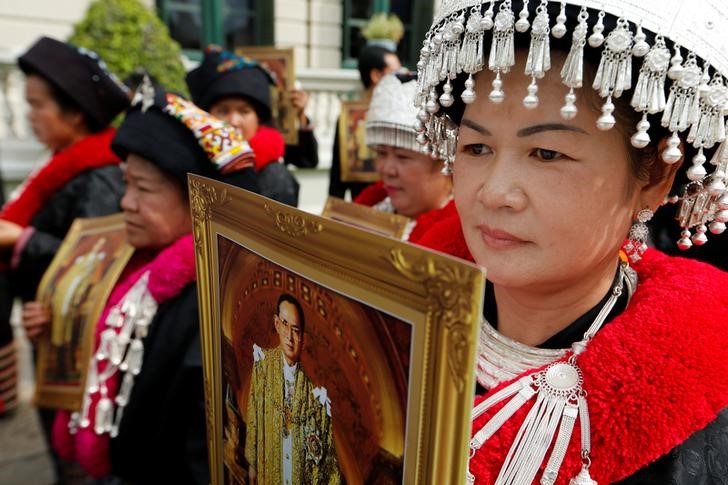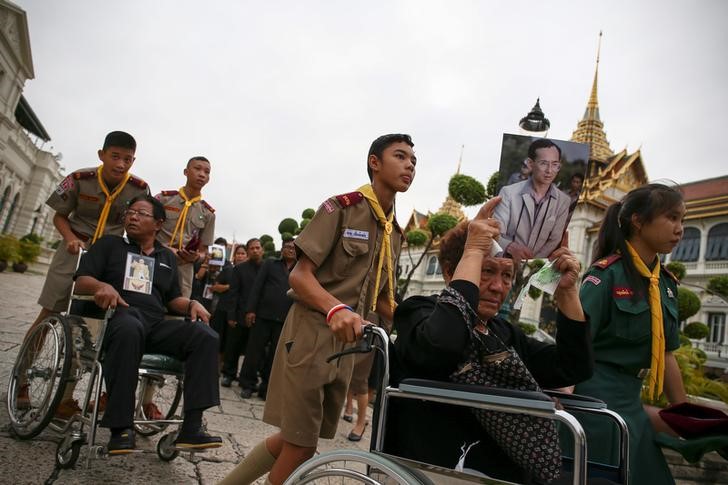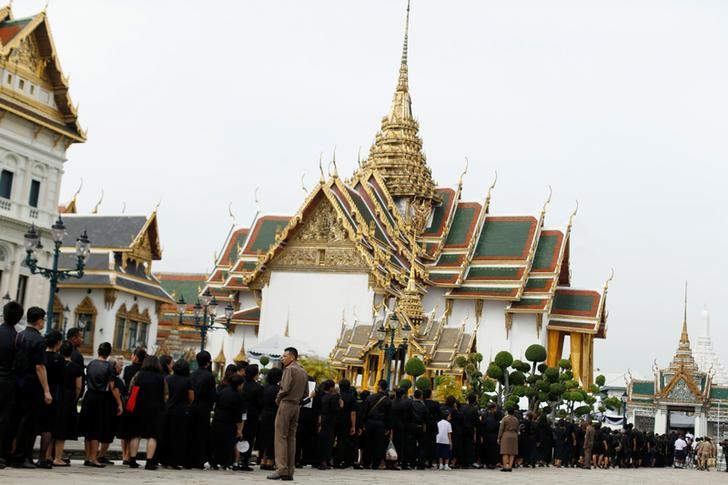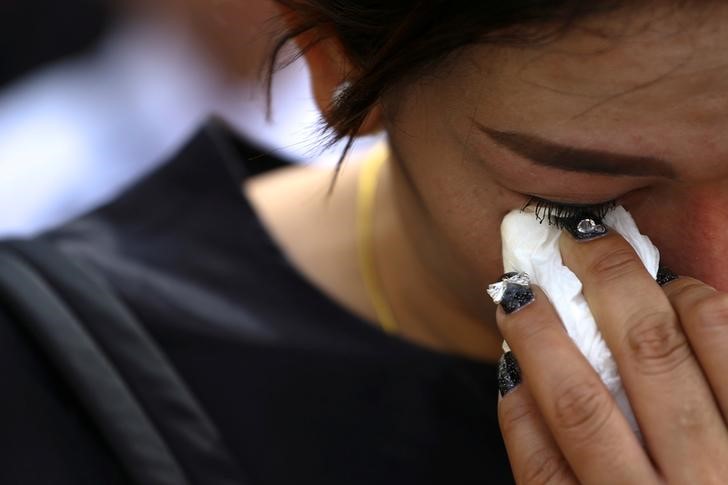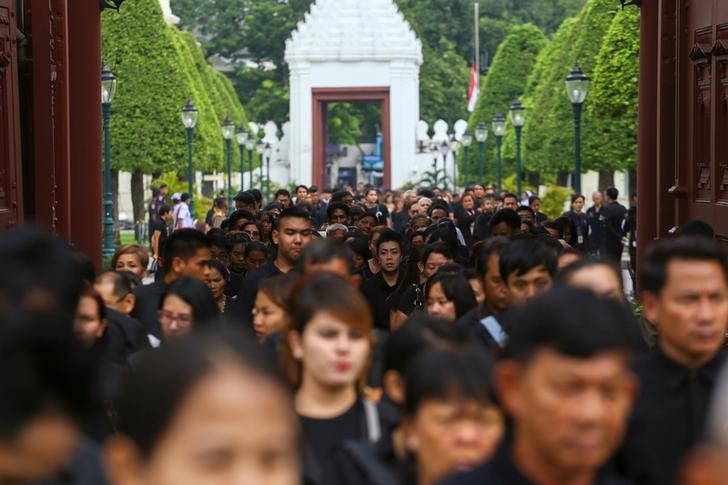
BANGKOK (Reuters) – Tens of thousands of Thais gathered at Bangkok’s glittering Grand Palace on Saturday hoping to pay their respects before the funeral urn of late King Bhumibol Adulyadej, the world’s longest-reigning monarch.
King Bhumibol, 88, died on Oct. 13 after reigning for seven decades as a constitutional monarch and unifying figure in the politically febrile country.
Thailand’s military-led government has declared a year-long period of mourning for the late king, formally known as Rama IX, and many Thais are wearing black as a sign of respect.
About 80,000 mourners arrived at the palace on Saturday morning, deputy police spokesman Major General Songpol Wattanachai told Reuters.
Authorities have said 10,000 mourners will be allowed to enter the Dusit Maha Prasat Throne Hall, inside the palace, each day.
“I’m prepared now to go in and pay my respects to our late king because this will be the last time for us to express our sorrow,” said mourner Waewwan Iimsud, 42, waiting to enter the hall.
Daily religious rites are taking place in the hall, where the king’s body lies in state, and senior members of the royal family have taken turns attending daily, amid chanting by Buddhist monks.
The bodies of high-ranking Thai royals traditionally used to be placed in a golden urn. But palace officials said that tradition would no longer upheld and the king’s body would be placed in a coffin with the symbolic urn nearby.
Crown Prince Maha Vajiralongkorn, 64, is the king’s designated successor, but junta chief Prayuth Chan-ocha told the country hours after the king’s death that the prince had informed him he would delay his ascension to the throne to give him time to mourn his father.
Prayuth said last week the prince could become king in seven to 15 days after the king’s death, or later. His coronation, however, cannot take place until after the royal cremation, in a year’s time.
Since taking power in a May 2014 coup, the military, which sees itself the protector of the monarchy, has cracked down on perceived royal critics and has shown it is highly sensitive to any discussion of the monarchy and succession.
Criticism of the king, queen, heir or regent is a crime punishable by up to 15 years in prison for each offence.
The government said last week that it would ask other countries to extradite people suspected of insulting the monarchy.
(Reporting by Orathai Sriring, Manunphattr Dhanananphorn and Jurawee Kittisilpa; Writing by Amy Sawitta Lefevre; Editing by Nick Macfie)
Copyright 2016 Thomson Reuters. Click for Restrictions.


